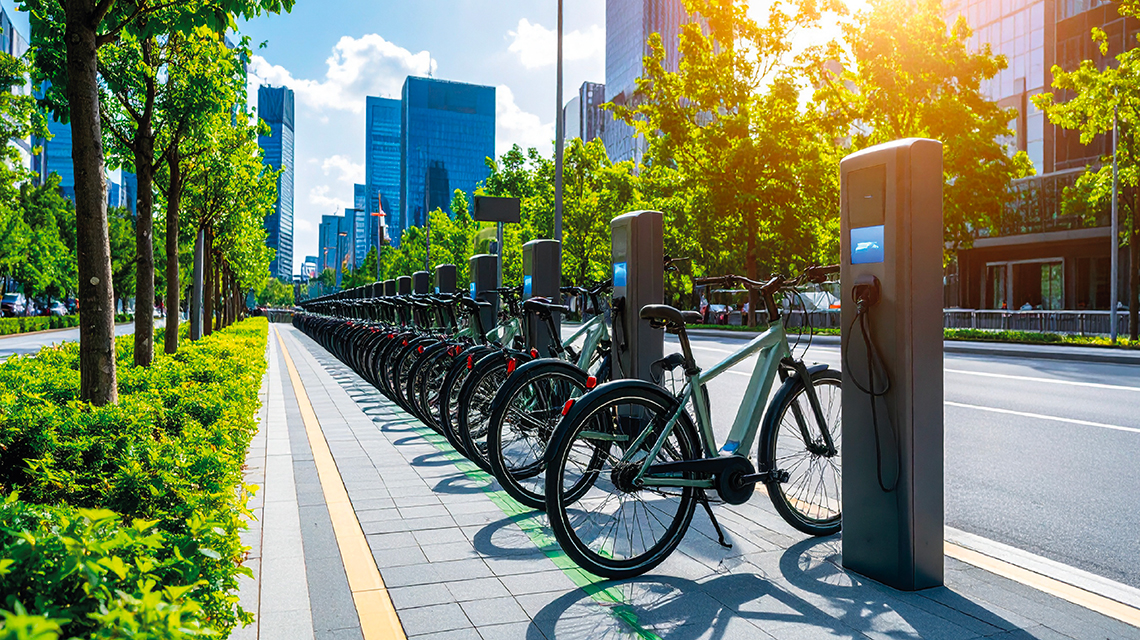Italian National Agency for New Technologies, Energy and Sustainable Economic Development

Mobility: New cycle paths and e-bike pillars from EU project
Over 100 kilometers of cycle paths in several european cities, from Turin to Lucca, from Belgrade to Istanbul. 20 recharging stations in 10 cities for electric bicycles, to be built with recycled urban waste: construction materials, tyres, end-of-life electric vehicle batteries and photovoltaic panels. This is what will be achieved with the ‘Smile City’ project (Sustainable materials for innovative, low emissions applications in the circular city), in which ENEA is participating together with 34 partners including CNR (The National Research Council), the University and the Politecnico of Turin. The overall budget of the project is around 10 million euros and the tasks are to be completed by the end of 2028.
As ENEA's scientific head of the project, Corradino Sposato of the Energy Technologies and Renewable Sources Department (TERIN) explains, 'ENEA has been involved in the drafting of the project from the earliest stages and will characterize the innovative materials, such as concrete and plastics with a high recycled content, through accelerated ageing tests. Accelerated ageing makes it possible to reproduce atmospheric conditions that damage materials, such as heat, humidity and UV radiation. In just a few days or weeks, the damage that would occur over months or years of outdoor exposure is reproduced'.
More specifically, 'freeze-thaw cycles will be carried out for concrete, which are among the main causes of degradation for structures. Freezing water, in fact, generates stresses that can damage the material. Physical, thermal and mechanical performance will be monitored.
The “Smile City” project will bring together european technological excellences to implement innovative solutions under the banner of a low-carbon and circular economy, based on the use of sustainable transport with a low environmental and energy impact.
Sposato concludes: “Smile City” supports the transition to a sustainable, regenerative and inclusive economy on a national and european scale, focusing on the key aspects of the green deal. Many cities are already developing plans to improve circularity in economic sectors, value chains and services. The adoption of best practices for sustainable mobility through increased energy efficiency and independence from energy resources is, among others, an example. Research and innovation can contribute to improving circularity in local systems and economies while at the same time acquiring new knowledge and skills at multiple levels'.
